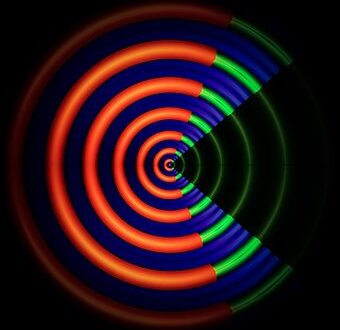
What is wicca?
Wicca – magic closer to nature
Since the dawn of time, people in all cultures of the world have worshipped nature, because they perceived the presence of gods in it. The worship of the Sun and the Moon was common. In these celestial bodies were seen supreme beings – God and Goddess. People have also always practiced magic. These beliefs and practices are still present in the world today. And this is due to Wicca, the religion of modern witches and sorcerers. Although its history is short, since its inception Wicca has been thriving all over the world and its adherents are growing all the time. So what is its secret?
The history of Wicca begins in the late 1930s and is linked to the work of Gerald Gardner (1884-1964), an English civil servant and lover of the occult. In 1939, Gardner was initiated into the New Forest convention, by the congregation’s high priestess Dorothy Clutterbuck. That convention brought together several witches and had a hierarchical, three-tier structure (the title of high priestess was naturally the highest possible). Based on his experiences in the New Forest, in 1954 Gardner published a book called Witchcraft Today. In it he revealed the beliefs and practices of witches, for which they were burned at the stake in the Middle Ages, and which, as it turned out, were still going on and doing well. It was this book that laid the foundation of the Wicca religion, and Gardner was recognized as its founder. The Wicca tradition started by Gardner is today referred to as Gardnerian. Over time, many new strands of Wicca have emerged that have deviated from it. However, this is a very broad topic, so we will only give an overview of what Wicca is and what it definitely is not.
What is Wicca?
Many legends and misunderstandings have arisen around what Wicca is (and what it is not). But what is the truth?
Wicca is a neo-pagan religion whose followers are both witches and wizards. It is not a religion exclusively for women.
Wicca is based on pre-Christian beliefs. Wiccans worship nature. They spend a lot of time in its bosom, observing and analyzing the nature around them.
Followers of Wicca believe that the universe consists of two elements – male and female. And although they are opposite to each other, they are also equal and complement each other (at least according to most Wicca currents).
Wicca assumes that both elements also comprise the Supreme Being, who manifests his presence in everything that exists in the mortal world. For these reasons, followers of Wicca believe in a god and goddess, who represent the masculine and feminine aspects of both the universe and the Supreme Being.
The god is called the Horned God. He is the sun, which gives light, warmth, vitality and life. The Goddess, on the other hand, is Mother Earth, whose strength lies in her fertility. Like a woman, the Goddess goes through a menstrual cycle, which depends on what phase the Moon is in (rising, full, declining). Hence the Goddess has the face of a Virgin, Mother or Old Woman.
Wicca followers celebrate Sabbats (solar festivals) and Esabats (lunar festivals) during the year. These are not campfire meetings with the devil. Wiccans do not worship him! And their means of transportation is not a broomstick.
Ceremonial magic is important in Wicca. Wiccans believe that they are not passive participants in the reality around them. Magic enables them to shape it according to their own will. And since we are talking about magic and one’s own will, it is impossible not to mention the Wiccan advice, which states: “Do your will, but do not harm others with it.” And although this is a recommendation and not a command, the vast majority of Wicca followers follow this path and use magic only for noble purposes.
Wicca draws on the traditions of the Far East. The practice of magic is based on the skills of concentration and visualization. These, in turn, are developed through the practice of meditation, the art of entering a trance and concentrating on a particular image or desired outcome.
Followers of Wicca also believe in reincarnation. They believe that the human soul, after the death of the physical body in the mortal world, goes to the “ecstasy of the Goddess,” where it rests before its next incarnation. Each new life means spiritual development.
In Wicca, there is no sin and punishment. Man is the blacksmith of his fate. But he must not forget the Law of the Triple Return. It is somewhat connected with Wiccan advice and reads, “Whatever you do, good or bad, will return to you three times.”
Naturally, each strand, each convention and even each follower decides for themselves how they want to believe and practice. Because Wicca is a religion of free people, not a sect.




